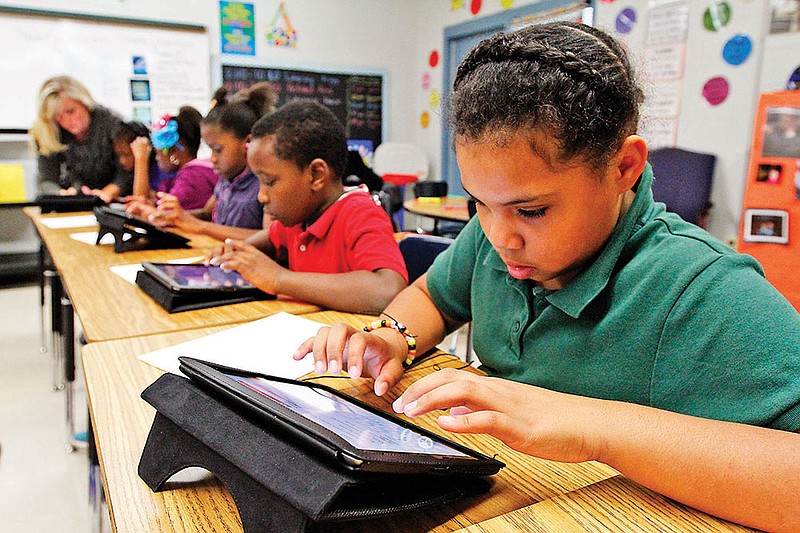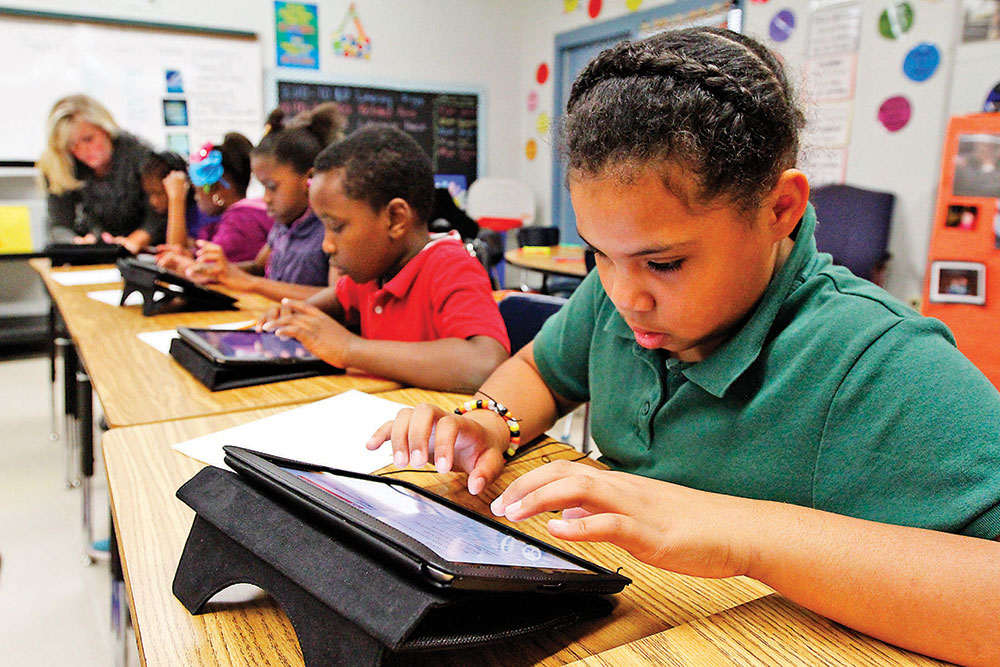Interactive map
View a map showing where EPB gigabit and 100 mbps customers live, by zip code.
WASHINGTON -- The Federal Communications Commission agreed late last week to dramatically boost spending to bring high-speed Internet access to schools and libraries in poor or rural areas, a move that would likely increase Americans' phone bills by about $2 a year, according to The Associated Press.
The FCC's E-Rate program provides discounted telecommunications and Internet access to qualifying schools and libraries. Educators hailed the 60 percent jump in spending to $3.9 billion as critical to making sure much of the nation's population doesn't get left behind, particularly as other countries invest heavily in broadband connections.
"It saves us lots of money," said Patty Kinsey, who's in charge of information technology for the Hamilton County Department of Education. The E-Rate program pays 71 percent of the cost of Internet and phone service for the roughly 43,000-student district, Kinsey said.
"We're looking for that percentage to go up," Kinsey said, anticipating more funding will come through the federal program. "It's a lot of work to file for it, but it's worth every penny."
All of 76 of Hamilton County's schools have high-speed wireless Internet service. All but a handful get it through EPB, Kinsey said, except for some schools outside EPB's service area that use Comcast.
FCC Chairman Tom Wheeler said he estimates that two-thirds of American schools still don't have access to high-speed connections, which can affect a child's ability to do homework, research college scholarships and acquire basic job skills.
"We are talking about a moral issue," Wheeler told The AP. "The greatest responsibility the greatest moral responsibility that any generation has is the preparation of the next generation," and "16 cents a month is a small price to pay for that great responsibility that we all have."
The E-rate program is paid for through a larger "universal service fund." Service providers are required to contribute to that fund, but the cost is often passed on to consumers as a required monthly fee.
E-Rate spending had been capped at $2.4 billion a year, but the FCC says demand is much higher. In 2013, the regulatory agency said it received $4.9 billion in E-Rate requests from local communities. The latest vote increases spending by $1.5 billion for a total of $3.9 billion a year.
The FCC's two Republican commissioners voted against the plan because they said businesses, which often pay for employee phones, would bear the brunt of the added cost. FCC Commissioner Ajit Pai said he believes the program is plagued by waste that could be fixed with fiscal reform.
"The commission shies away from making any hard choices and instead just pours more money into a broken system," Pai said.
The Obama administration endorsed the plan when Wheeler discussed the details last month. Education Secretary Arne Duncan called Thursday's vote "a huge step forward" in the administration's program to expand digital learning resources in schools, The AP reported.
Education advocates have long called for the FCC to authorize more E-Rate spending so that local governments could plan ahead for costly installations or upgrades. Bob Wise, president of the Alliance for Excellent Education and former governor of West Virginia, said the vote was the "best holiday gift possible" for educators.
"Access to the Internet is as important to learning today as traditional textbooks were fifty years ago," Wise said. "With increased funding for high-speed Internet connections, U.S. teachers and students will spend more classroom time teaching and learning rather than waiting for webpages and videos to load."
The Associated Press contributed to this story.

